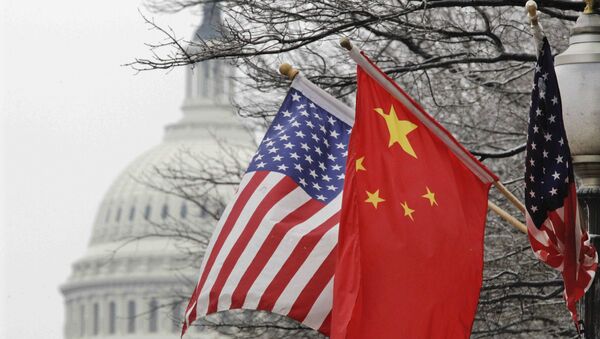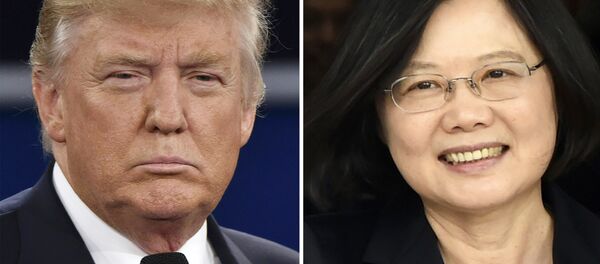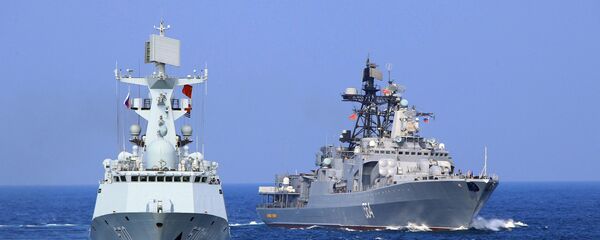"We can't continue to allow China to rape our country and that’s what they're doing. It's the greatest theft in the history of the world," Trump told a campaign rally in Indiana in May.
Since he was elected President in November, Trump has continued his criticism. In early December Trump again slammed China's economic policy, as well as Beijing's island-building in the South China Sea.
While Trump has vocally criticized Chinese economic policy, the Obama administration has also had complaints.
On January 12 it was reported that the Obama administration filed its 16th complaint with the WTO against China. This time Washington complained about Beijing's trade practices in the aluminum industry, accusing China of dumping cheap metal on the US market.
Professor Andrey Volodin of the Institute of World Economy and International Relations at the Russian Academy of Sciences told Sputnik that US conservatives like Trump and his nomination for Secretary of State Rex Tillerson are likely to be more tenacious in defending US interests than the Obama administration. The Trump administration has already shown itself ready to challenge multinational companies seeking greater profit.
"American conservatives – including Trump and Tillerson – have long sounded the alarm about the fact that with its economic policy, in this case the outsourcing of production to China, the US has strengthened its potential rival," Volodin said.
"At the same time they will have to overcome the resistance of their own American multinationals, which have transferred production not only to China but to other developing countries and made a lot of profit. Trump demonstrated a determined approach regarding the transfer of the automobile industry to the US from Mexico and Japan. It appears he will firmly continue this policy in the direction of China. Behind the scenes diplomacy in relation to transnational corporations and the ability to find a compromise with China will be of major, if not decisive, significance," Volodin said.
Trump's critical view of China was echoed by Rex Tillerson on Wednesday, when he answered questions from the Senate Foreign Relations Committee on a range of issues concerning US foreign policy.
Tillerson characterized relations between the US and China as "both friendly and adversarial," and praised China's efforts to tackle radical Islam.
"The economic well-being of our two nations is deeply intertwined. China has been a valuable ally in curtailing elements of radical Islam. We should not let disagreements over other issues exclude areas for productive partnership," Tillerson said.
However, his comments on the South China Sea dispute caused a stir in Beijing.
"We’re going to have to send China a clear signal that, first, the island-building stops," he said.
"And second, your access to those islands also is not going to be allowed."
Tillerson also accused Beijing of failing to do more to defuse tension in the Korean peninsula.
"We cannot continue to accept empty promises like the ones China has made to pressure North Korea to reform, only to shy away from enforcement," he said.
Andrey Volodin told Sputnik that Tillerson's acknowledgement of the dual nature of the US-Chinese relationship is important.
"Tillerson, who I hope will be the new Secretary of State, in addition to his tough statements about China also said that the US and China have an ambivalent relationship. On the one hand friendship, on the other hand competition. These pillars will be clearly discernible in US foreign policy towards China."
"There are some essential errors in the criticism of China regarding North Korea and the South China Sea. With regard to North Korea in particular, the US encourages everyone to think that there is a need to push China, saying that China isn't able to restrain or discipline North Korea, and that's what causes North Korea to continue provocation," Yuanzhe said.
"These statements are completely absurd. China and North Korea maintain normal relations, there is no so-called 'restraining.' In fact, the existence of the problem of North Korea today is everyone's responsibility, particularly the US. The Obama administration's deployment of THAAD [missiles] in South Korea, move to carry out an increasing number of military exercises, attempts to create 'coercive power scenarios' – all this only leads to the continuous aggravation of the problem in the Korean Peninsula."







